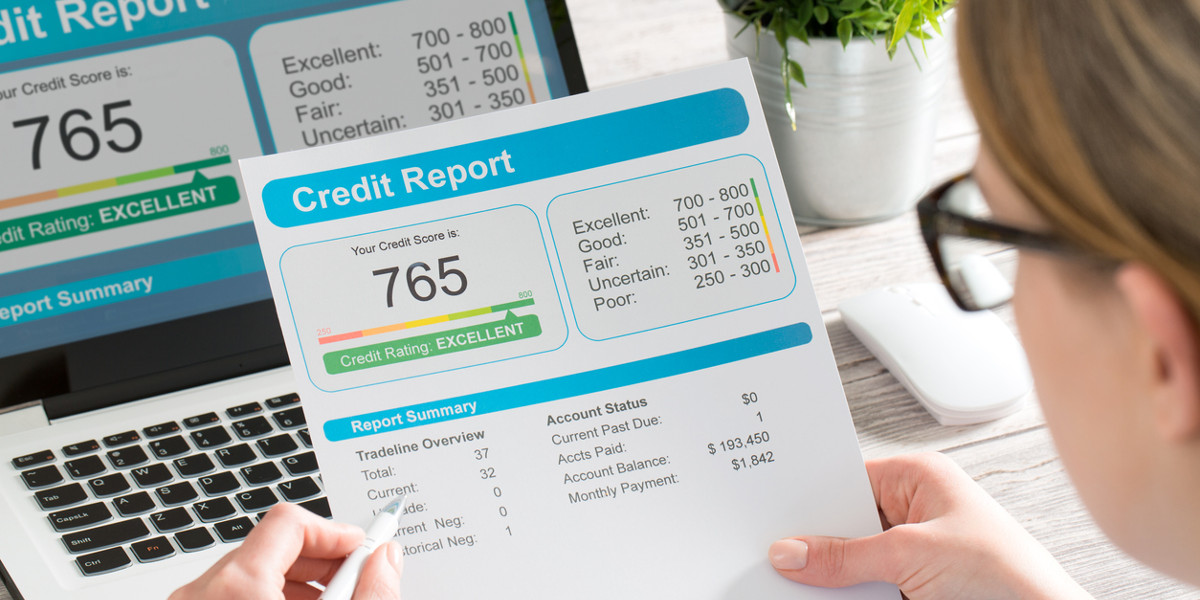6 Things to Know Before Taking Out a Personal Loan

Life is full of the unexpected. Unfortunately, the unexpected can be expensive. If you're in sudden need of a large amount of cash, then you're going to need to get a personal loan. Of course, not all lenders are the same. Some lenders may promise you quick approval. Some may say they have the lowest terms available. Others may promise no additional fees. If you want to get the best deal possible for your situation, you're going to have to make sure that you keep an eye out for any risks. To help you do that, it's important that you have an in-depth knowledge of personal loans. Aside from our guide, we’ve included tips on taking out a personal loan so you can avoid getting a raw deal.
How to take out a personal loan
1. Check your creditworthiness.
Taking out a personal loan means opening up your credit history for inspection. Before you do that, you need to be aware of what the lenders will see. Simply put, you need to check your credit score and look over your credit report. Make sure there aren’t any errors in your credit report. The higher the credit score, the better chance you have at getting approved for a loan with the possibility of a lower interest rate. Checking your creditworthiness also help you know ahead of time if you need to build up your score first before sending in your application. This is because taking out a personal loan with bad credit can result in a really high-interest rate, something no one wants.
2. Don’t borrow more than you can afford.
You need to make sure that the monthly payment on your personal loan is something you can live with. In short, it should be something that you can cover using your monthly income, without sacrificing your other financial responsibilities such as utilities, food, transportation, etc. Doing so ensures that you don’t end up deeper in debt because you defaulted on the loan. To make sure that you only borrow what you can realistically pay off, look at your monthly budget and calculate how much money you can spare for repaying the loan after all your other bills are paid.
3. Shop around.
No matter how dire your circumstances may be, it never pays to go with the first offer you get. It’s important that you compare loan offers so you can find the loan terms that suit you best. When considering loan offers, make sure that you check the Annual Percentage Rate (APR), the repayment period, the monthly payment, and the loan minimum and maximum amount. The APR indicates the total cost you’ll need to pay each year (in addition to the loan amount) for borrowing the money. The repayment period is the length of the loan. Take note that the longer the term of the loan, the higher the cost of the loan. The loan minimum and maximum are the amounts that a lender is willing to lend. For example, a lender may have a minimum amount of $2,000 and a maximum amount of $5000. A lender may not be a good fit if he requires you to borrow more than you need or does not lend as much as you want to borrow.
Aside from looking at various loan offers, you also need to look at the lender’s reputation. Check with the Better Business Bureau and the consumer complaint database of the Consumer Financial Protection Bureau to see if borrowers have experienced problems dealing with the lender.
4. Minimize the impact of credit inquiries.
Yes, you checking your credit report and credit score does not have an effect on your creditworthiness. However, a hard inquiry performed by a lender will have a negative effect. Too many hard inquiries can lower your credit score. In addition, these inquiries will remain in your report for two years. Since it is important that you shop around, you need to send all your applications within a span of a few weeks. This is because multiple hard inquiries that occur within a short span of time are typically counted as a single event, thereby minimizing its impact on your credit score.
5. Pre-qualify for a loan.
Another way to avoid hard inquiries is to ask the lender if you can pre-qualify for a loan. This means that the lender will only need to make a soft credit inquiry which doesn’t have an impact on your credit score. Pre-qualification also enables you to see what kind of offer you may receive when you submit an application. Take note that not all borrowers can pre-qualify for a loan. Those who have a low credit score, little to no work history, little income, or a high debt-to-income ratio may not pre-qualify for a personal loan.
6. Always read the fine print.
It pays to pay attention. Some lenders charge prepayment penalties when you pay off the loan early. Some will charge an origination fee. You need to check if it is clearly disclosed in the total cost of the loan and if it is figured into the APR. Make sure that you are aware of all the terms and conditions before you sign on the dotted line.
How does taking a personal loan affect your credit?

There are different ways that your personal loan will affect your credit. For people who are consolidating their debt and using the loan to pay off high-interest rate loans, your credit score and credit report may be positively affected. Making on-time payments on the personal loan can also help improve your creditworthiness. Combined with debt consolidation, taking out a personal loan can lower your credit utilization ratio and up your credit score.
However, there are also some negative effects of taking out a personal loan. When you apply for a personal loan, the lender will perform a credit check on you which can negatively impact your credit score. Any late payments on your personal loan will go into your payment history which can also have a negative impact on your credit score.
Should I take a personal loan to pay off credit cards?
Credit card debt is revolving debt. Unlike a personal loan, it is open-ended which means that there is no end date. You only have a credit limit which is the maximum amount of money you can borrow plus any finance charges and interest. The interest rate can change, and the monthly payment is based on a percentage of the unpaid balance. The problem with revolving debt is that it is easy to abuse. The problem with credit card debt, in particular, is that it usually has a higher interest rate compared to a personal loan. So, is taking out a personal loan to pay off credit cards the right thing to do? It depends.
You need to compare the interest rate of your personal loan to the interest rate of any debt you already have, as well as to the interest rate of other financial products available to you. This can save you money on interest over time. For those with excellent credit, you may be better off with a balance transfer card that offers a zero percent introductory APR. This way, you are able to pay off your debt without incurring any interest. If you can’t qualify for one, make sure that the monthly payments of your personal loan are not too high that you end up with a cash flow problem. Some lenders charge origination fees which may be included in your total loan amount. This means that you may be paying interest on that as well. And it also lessens the amount you’ll be getting from the lender. Make sure that the amount you get is enough to pay off your credit card debt.


